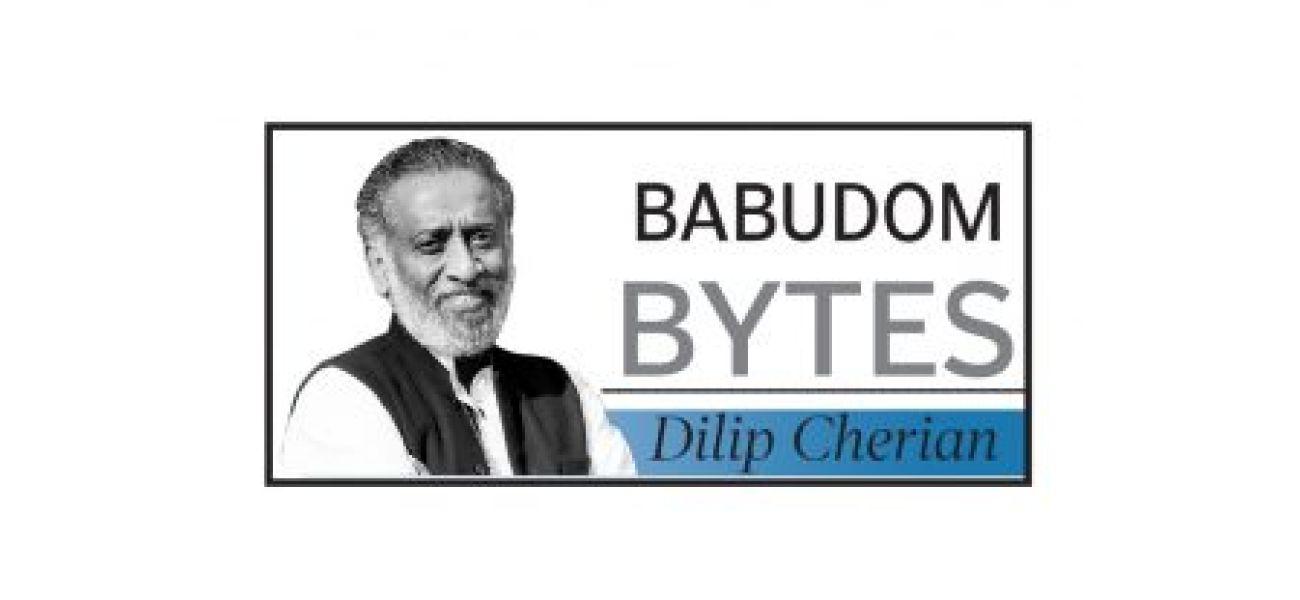Efficiently navigating complex systems and processes.
India's bureaucrats are skilled at disguising flexibility as policy, as exemplified by the extended tenures of two senior IPS officers at the Enforcement Directorate.
April 26th 2025.

India's bureaucrats are known for their skill in turning flexibility into official policy. An example of this can be seen in the recent extensions given to Sonia Narang and Abhishek Goyal, both senior IPS officers on central deputation to the Enforcement Directorate. Their tenures have been extended in a way that bypasses the usual IPS tenure policy. This is a classic case of the government saying, "Yes, we have rules, but no, we are not always bound by them."
Let's take a closer look at Narang's situation. In early April, she was suddenly relieved from her position at the ED and sent back to her home cadre in Karnataka without any explanation. And just like that, she's back in Delhi with a one-year extension. Talk about whiplash! During her time at the ED, she has handled a variety of high-profile cases, from PFI and IFFCO to Vivo and Maoists, and even the glamorous Khan Market cash trail. It seems someone has decided that she is too valuable to let go just yet. But it leaves observers wondering why she was given such an unceremonious exit in the first place.
Goyal's extension is equally telling. Currently leading the HIU and also handling the Northern Region, he, too, has been given a one-year extension. It seems that being in the midst of political action has its perks.
Let's not forget that the post of Special Director is the second-highest rank in the ED hierarchy, and there are a total of nine of them. That's a lot of "special" and not a lot of clarity. It's clear that when power and convenience collide, the rules are bent, twisted, and politely ignored. The government may call it a relaxation, but for many others, it's a masterclass in bureaucratic maneuvering.
Meanwhile, in Kerala, the state's bureaucrats seem to be starring in their own version of a reality show. Public spats, social media drama, and allegations of corruption are flying faster than the monsoon winds. At the center of this storm is IAS officer N. Prasanth, who is affectionately known as "Collector Bro" for his social media savvy. He is currently suspended and has accused senior bureaucrats A. Jayathilak and K. Gopalakrishnan of corruption and conspiracy. He has even dragged a Malayalam daily into the fray. Prasanth claims that his suspension is retaliation for whistleblowing against entrenched corruption and misuse of office. These are serious charges that cannot be easily dismissed.
In a twist of fate, Gopalakrishnan was suspended for allegedly creating a religion-based WhatsApp group, which was seen as a violation of service rules. Prasanth's own suspension came after his very public criticism of Jayathilak on social media, which the government deemed a breach of conduct. This online feud has exposed the cracks within Kerala's famously disciplined administrative set-up.
But this isn't just a case of bruised egos; it reflects deeper dysfunction within the administrative framework. The public airing of such disputes, especially on social media, undermines the integrity of the civil services and erodes public trust. And let's not forget, it's also a massive distraction from the important work of governance. In this age of transparency, it's time for the bureaucrats to embrace openness and address internal conflicts through proper institutional channels. After all, the public deserves a civil service that is accountable, efficient, and not prone to becoming the subject of an OTT-worthy drama.
In Madhya Pradesh, a silent discontent is brewing among babus in the power corridors. While IAS, IPS, and IFS officers are required to disclose their immovable assets every year, ministers have been exempt from this transparency for over 15 years. This contrast is striking and speaks volumes. Although no one dares to say it out loud, there is palpable resentment among the bureaucrats.
The state's General Administration Department has reiterated that all state employees, including ministers, must submit detailed property disclosures. This includes information on ancestral and self-acquired properties, purchase dates, values, and current market valuations. Failure to comply could result in withheld salaries or stalled promotions, which is a severe penalty for even a minor delay, let alone outright defiance.
In contrast, ministers have largely avoided such scrutiny. Despite previous promises, including a 2016 announcement to declare assets online, many ministers have not consistently disclosed their property details. Successive governments have either quietly ignored the issue or swept it under the rug, possibly to avoid upsetting political allies.
This double standard fosters a sense of unfairness among bureaucrats, who are held to strict standards while political leaders operate with relative impunity. The talk in government circles is not about whether this is unjust, but rather how long it will continue.
The lack of transparency among ministers undermines the principles of accountability and good governance. For a truly transparent administration, it's essential that ministers lead by example and embrace the same disclosure standards imposed on bureaucrats. Until then, babus will continue to file their disclosures under silent protest, watching their political bosses sail above the accountability tide, dry, untouched, and remarkably unconcerned.
Let's take a closer look at Narang's situation. In early April, she was suddenly relieved from her position at the ED and sent back to her home cadre in Karnataka without any explanation. And just like that, she's back in Delhi with a one-year extension. Talk about whiplash! During her time at the ED, she has handled a variety of high-profile cases, from PFI and IFFCO to Vivo and Maoists, and even the glamorous Khan Market cash trail. It seems someone has decided that she is too valuable to let go just yet. But it leaves observers wondering why she was given such an unceremonious exit in the first place.
Goyal's extension is equally telling. Currently leading the HIU and also handling the Northern Region, he, too, has been given a one-year extension. It seems that being in the midst of political action has its perks.
Let's not forget that the post of Special Director is the second-highest rank in the ED hierarchy, and there are a total of nine of them. That's a lot of "special" and not a lot of clarity. It's clear that when power and convenience collide, the rules are bent, twisted, and politely ignored. The government may call it a relaxation, but for many others, it's a masterclass in bureaucratic maneuvering.
Meanwhile, in Kerala, the state's bureaucrats seem to be starring in their own version of a reality show. Public spats, social media drama, and allegations of corruption are flying faster than the monsoon winds. At the center of this storm is IAS officer N. Prasanth, who is affectionately known as "Collector Bro" for his social media savvy. He is currently suspended and has accused senior bureaucrats A. Jayathilak and K. Gopalakrishnan of corruption and conspiracy. He has even dragged a Malayalam daily into the fray. Prasanth claims that his suspension is retaliation for whistleblowing against entrenched corruption and misuse of office. These are serious charges that cannot be easily dismissed.
In a twist of fate, Gopalakrishnan was suspended for allegedly creating a religion-based WhatsApp group, which was seen as a violation of service rules. Prasanth's own suspension came after his very public criticism of Jayathilak on social media, which the government deemed a breach of conduct. This online feud has exposed the cracks within Kerala's famously disciplined administrative set-up.
But this isn't just a case of bruised egos; it reflects deeper dysfunction within the administrative framework. The public airing of such disputes, especially on social media, undermines the integrity of the civil services and erodes public trust. And let's not forget, it's also a massive distraction from the important work of governance. In this age of transparency, it's time for the bureaucrats to embrace openness and address internal conflicts through proper institutional channels. After all, the public deserves a civil service that is accountable, efficient, and not prone to becoming the subject of an OTT-worthy drama.
In Madhya Pradesh, a silent discontent is brewing among babus in the power corridors. While IAS, IPS, and IFS officers are required to disclose their immovable assets every year, ministers have been exempt from this transparency for over 15 years. This contrast is striking and speaks volumes. Although no one dares to say it out loud, there is palpable resentment among the bureaucrats.
The state's General Administration Department has reiterated that all state employees, including ministers, must submit detailed property disclosures. This includes information on ancestral and self-acquired properties, purchase dates, values, and current market valuations. Failure to comply could result in withheld salaries or stalled promotions, which is a severe penalty for even a minor delay, let alone outright defiance.
In contrast, ministers have largely avoided such scrutiny. Despite previous promises, including a 2016 announcement to declare assets online, many ministers have not consistently disclosed their property details. Successive governments have either quietly ignored the issue or swept it under the rug, possibly to avoid upsetting political allies.
This double standard fosters a sense of unfairness among bureaucrats, who are held to strict standards while political leaders operate with relative impunity. The talk in government circles is not about whether this is unjust, but rather how long it will continue.
The lack of transparency among ministers undermines the principles of accountability and good governance. For a truly transparent administration, it's essential that ministers lead by example and embrace the same disclosure standards imposed on bureaucrats. Until then, babus will continue to file their disclosures under silent protest, watching their political bosses sail above the accountability tide, dry, untouched, and remarkably unconcerned.
[This article has been trending online recently and has been generated with AI. Your feed is customized.]
[Generative AI is experimental.]
0
0
Submit Comment





